Search
Search Results

Definition
Walpurgis Night
Walpurgis Night (30 April, annually) is a modern-day European and Scandinavian festival derived from the merging of the ancient pagan celebration of Beltane with the commemoration of the canonization of the Christian Saint Walpurga (l. c...

Definition
Scythian Religion
Scythian religion appears to be an amalgam of belief in a pantheon of gods grafted to more ancient animal reverence and shamanistic practice. According to their burial finds, the Scythians appear to have had a deep affinity with the animals...
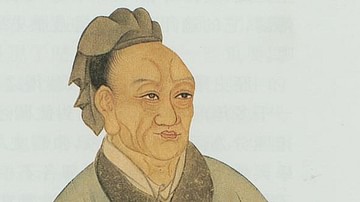
Definition
Sima Qian
Sima Qian (l. 145/135-86 BCE) was a court scribe, astrologer, and historian of the Han Dynasty (202 BCE - 220 CE) of ancient China, famous for his historical work Records of the Grand Historian for which he is remembered as the Father of...

Definition
Gideon
Gideon was a judge and military leader, whose story was recounted in the Biblical Book of Judges. “Judge” (Hebrew, shofet) in this book was not a circuit, court judge, but someone raised up by the God of Israel during a crisis. It is equivalent...

Definition
Samhain
Samhain (pronounced “SOW-in” or “SAH-win”), was a festival celebrated by the ancient Celts halfway between the autumn equinox and the winter solstice. It began at dusk around October 31st and likely lasted three days. Samhain marked the transition...
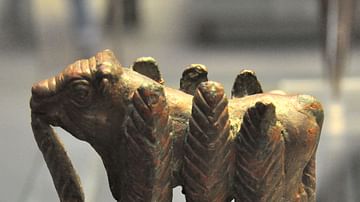
Definition
Nanshe
Nanshe (also known as Nanse, Nazi) is the Sumerian goddess of social justice and divination, whose popularity eventually transcended her original boundaries of southern Mesopotamia toward all points throughout the region in the 3rd millennium...
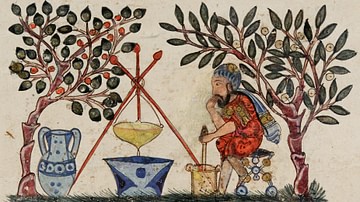
Article
Medicine in Ancient Mesopotamia
In ancient Mesopotamia, the gods informed every aspect of daily life including the practice of medicine. Gula, the Sumerian goddess of healing, presided over the medical arts, guiding doctors and dentists in the treatment of health problems...

Article
Herodotus on the Egyptians
II:35. The Egyptians in agreement with their climate, which is unlike any other, and with the river, which shows a nature different from all other rivers, established for themselves manners and customs in a way opposite to other men in almost...
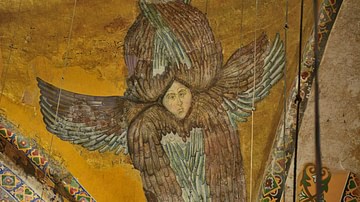
Article
Angels in Ancient Judaism
The concept and function of angels in ancient Judaism were some of the many elements incorporated from contemporary cultures and religious views. The Hebrew malakh was translated into the Greek angelos, both of which indicated not their nature...
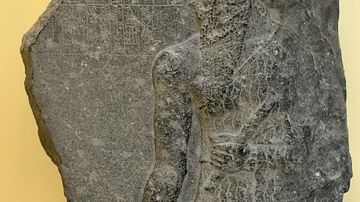
Article
The Legend of Cutha
The Legend of Cutha (also known as the Cutha Legend and Kutha Legend) is a fictional work dated to the 2nd millennium BCE belonging to the genre known as Mesopotamian Naru literature. It features the Akkadian king Naram-Sin (r. 2261-2224...